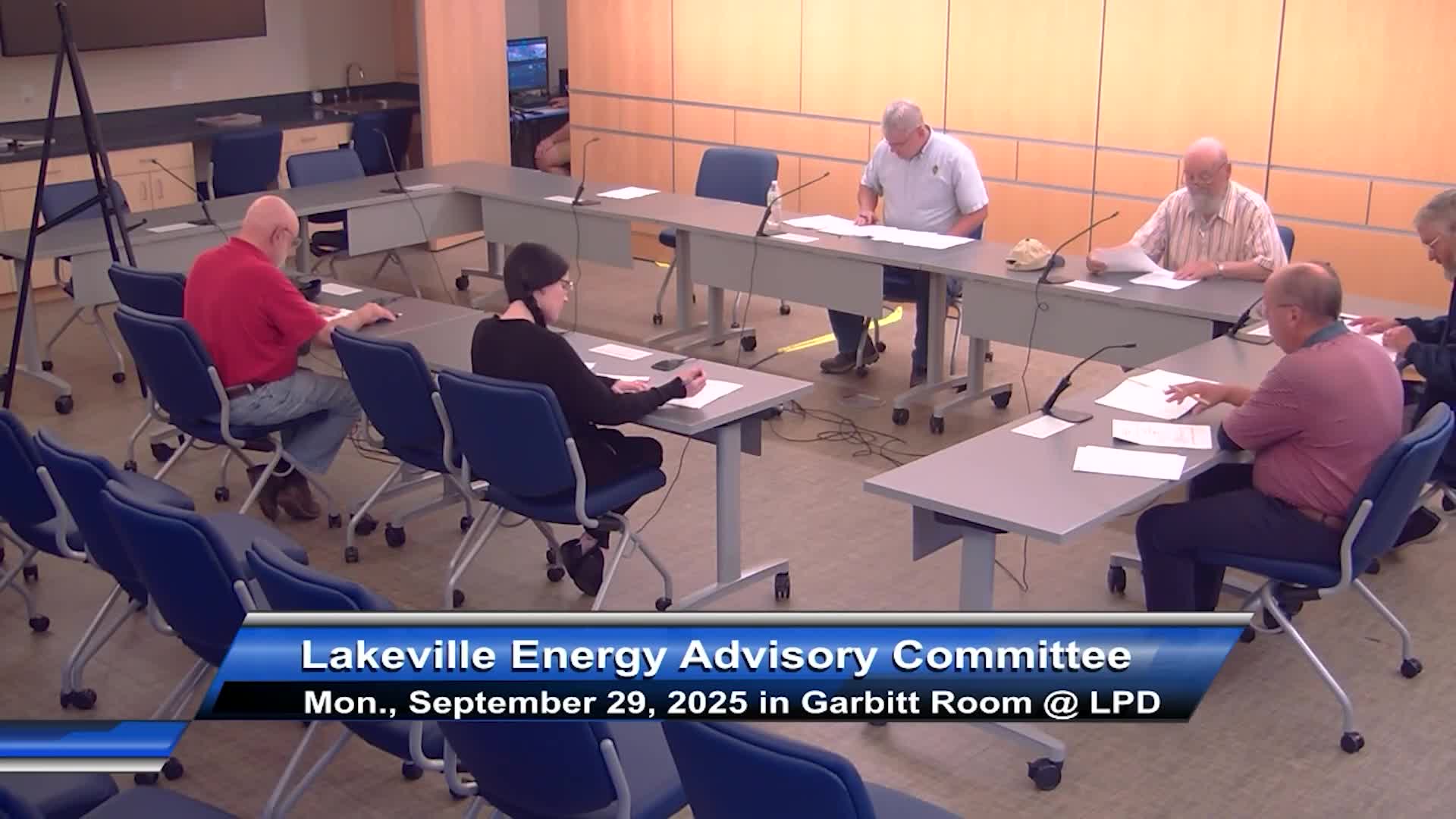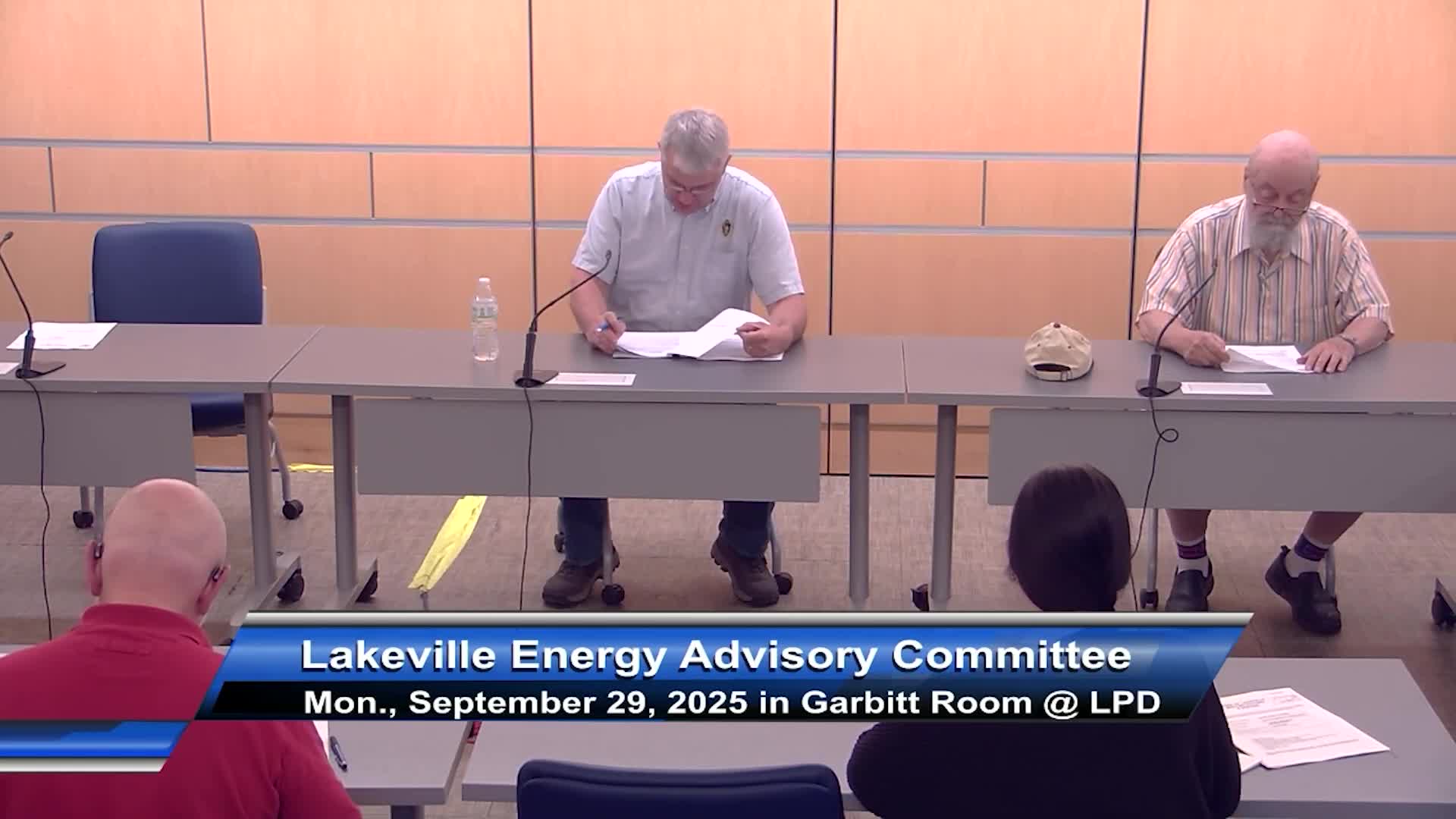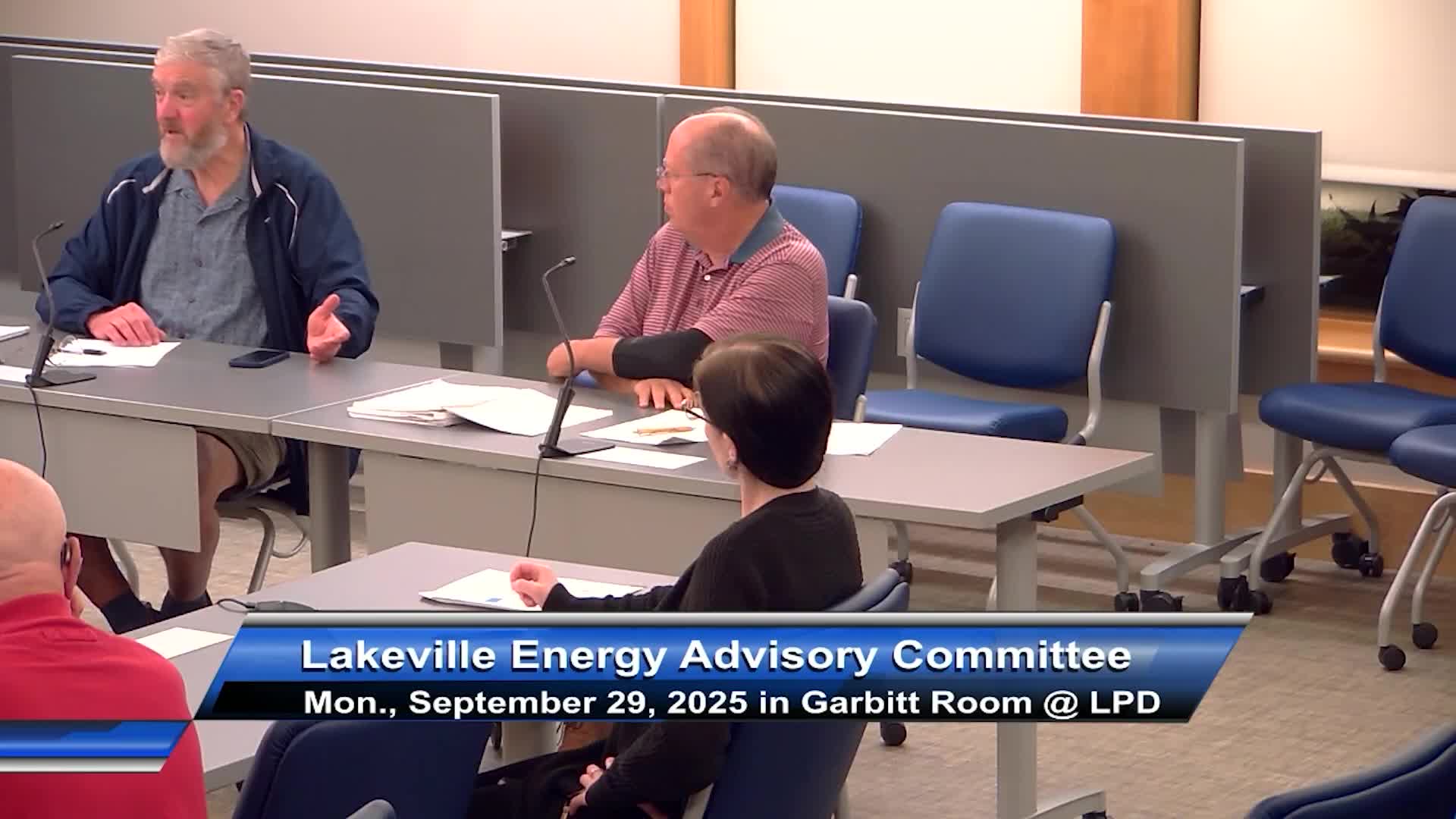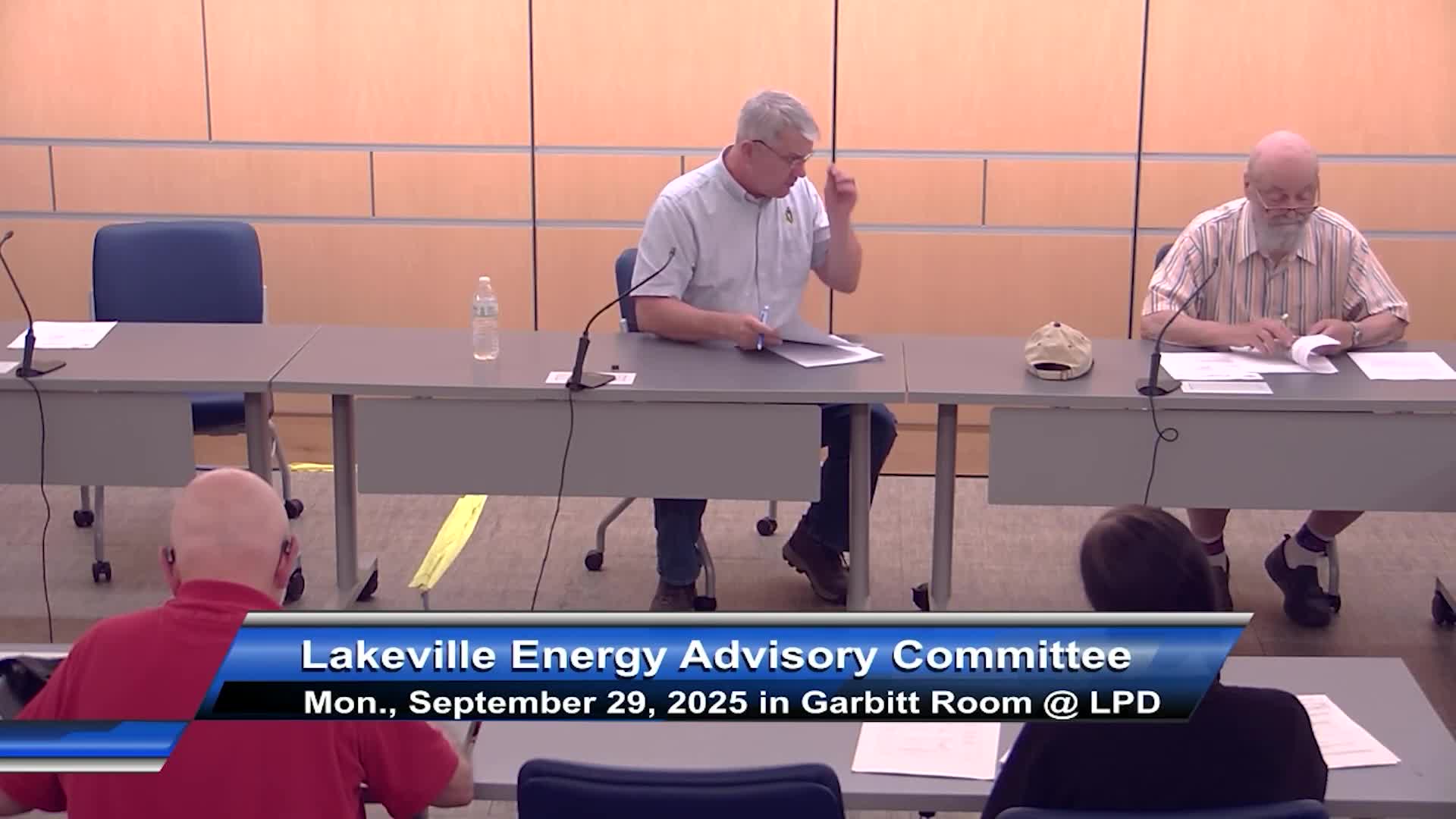Article not found
This article is no longer available. But don't worry—we've gathered other articles that discuss the same topic.

Lakeville discusses Green Communities grants, heat-pump installs and deeper audits

Lakeville energy advisory panel elects chair and vice chair, approves old minutes

Lakeville committee to seek briefings on Green Mountain Power model and PowerOptions consortium

